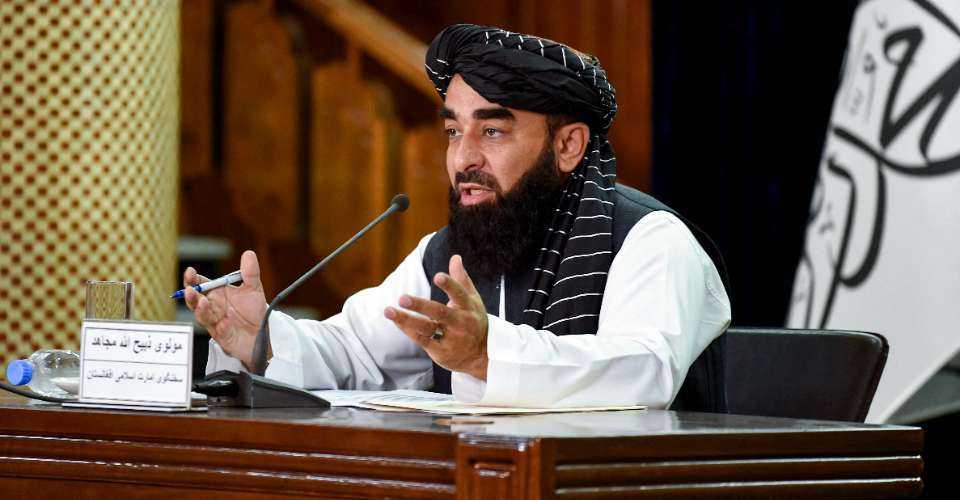
A Taliban spokesman addresses a press conference in Kabul on June 29. (Photo: AFP)
Representatives of Afghanistan's Taliban government began meetings on June 30 with UN officials as they attended talks in Doha with special envoys to the Central Asian country for the first time, a UN spokesperson said.
The two-day, UN-hosted meeting in Qatar is the third of its kind in the gas-rich emirate in just over a year but the first to include Taliban authorities who seized power in Afghanistan in 2021.
"Preparatory discussions have begun with the UN meeting separately with many of the special envoys in attendance and with the Taliban representatives," the UN spokesperson, who asked not to be named, told AFP.
UN officials and over 20 envoys, including the US special representative to Afghanistan, were expected to meet with the Taliban government's delegation led by spokesman Zabihullah Mujahid.
The talks in Doha were due to discuss increasing engagement with Afghanistan and a more coordinated response to the country, including economic issues and counter-narcotics efforts.
In the aftermath of the Taliban's return to power, the international community has grappled with its approach to Afghanistan's new rulers.
The Taliban government in Kabul has not been officially recognized by any other government since it took power and the administration has imposed a strict interpretation of Islam, with women subjected to laws characterized by the UN as "gender apartheid."
The Taliban authorities had been excluded from the first round of UN talks in May 2023 and declined to attend the second round in February, demanding that their delegation be the only Afghan representatives.
In a push to include Taliban government representatives, that condition has been met with the exclusion of civil society groups which will meet with representatives on July 2 instead.
'Caving'
Ahead of the UN event, Taliban foreign ministry official Zakir Jalaly on June 30 maintained that any meetings taking place after July 1 were "unrelated" to the official agenda.
The sidelining of civil society organizations has provoked an outcry among the groups, including women's rights activists.
"Caving into the Taliban's conditions to secure their participation in the talks would risk legitimizing their gender-based institutionalized system of oppression," head of Amnesty International Agnes Callamard said in a statement ahead of the talks.
Mujahid told a Kabul news conference that Taliban authorities "acknowledge the issues about women" but asserted they were "Afghanistan's issues" to solve.
Hameed Hakimi, an Afghanistan expert, told AFP the international community was "genuinely" concerned over women's rights and the role of civil society in the country.
But he explained that international policymakers, "while accepting the Taliban are not perfect players in the game, also recognize that there is this gap that has not been filled by the Afghans themselves."
In recent years, many governments, international organizations, and aid agencies cut off or severely scaled back their funding to Afghanistan in response to the Taliban authorities' return to power -- dealing a serious blow to the already struggling economy.
"On the one hand, there's a humanitarian situation that requires funding, on the other hand, you can't alleviate the humanitarian situation without the political engagement," the Britain-based, Chatham House specialist explained.
Ahead of the UN-hosted discussions, the Taliban government delegation held meetings in Doha with special envoys from Russia, India, Saudi Arabia, and Uzbekistan, Mujahid said on X, formerly Twitter.


